#Ecommerce platform
Explore tagged Tumblr posts
Text
Open Source eCommerce Platform
An open-source eCommerce platform gives you complete control over your online store. Unlike SaaS-based solutions, these platforms allow deep customization, scalability, and zero transaction fees. Popular choices like Magento, OpenCart, and WooCommerce let you build feature-rich stores with flexible payment gateways and SEO-friendly structures. Open-source eCommerce ensures cost-effective growth, whether you're a startup or an enterprise. Build your brand, own your data, and create a unique shopping experience!
3 notes
·
View notes
Text
Strengthen Brand Identity and Fuel Creativity with Sales Quoting Software
For value-added resellers in the IT and office supplies sector, creating a strong brand identity is indispensable. A brand identity not only sets a company apart from its competitors but also fosters trust and loyalty among customers.
However, maintaining a consistent brand image while striving for innovation can be a challenging task. This is where sales quoting software steps in to streamline processes, enhance brand identity, and fuel creativity. The business sales quoting software serves as a comprehensive solution for value-added resellers (VARs) to generate accurate quotes quickly and efficiently.
However its benefits extend beyond mere sales operations; it can play a pivotal role in reinforcing brand identity and fostering creativity within an organization. Here's how:
Consistency in Brand Messaging
A cohesive brand identity is built upon consistent messaging across all customer touchpoints. Sales quoting software allows businesses to incorporate branded templates, logos, and messaging into every quote, ensuring that the brand identity remains consistent throughout the sales process. This consistency reinforces brand recognition and strengthens the brand's overall image in the eyes of customers.
Personalization
While consistency is key, personalization is equally important for connecting with customers on a deeper level. A business quote generator enables businesses to tailor quotes to each customer's specific needs and preferences. By incorporating personalized elements such as customer names, relevant product recommendations, and customized pricing options, businesses can demonstrate their commitment to providing personalized experiences, thus enhancing brand loyalty.
Streamlined Workflows
Creativity thrives in environments where processes are streamlined and efficient. The software that has connections with Cisco Direct data feed automates repetitive tasks such as data entry, pricing calculations, and quote generation, allowing sales teams to focus their time and energy on more creative endeavors, such as crafting compelling sales pitches and developing innovative solutions to meet customer needs.
Data-Driven Insights
Creativity flourishes when fueled by insights and feedback. Sales quoting tools connected to catalog management solutions provide valuable data and analytics on quote performance, customer preferences, and sales trends. By leveraging these insights, businesses can identify areas for improvement, uncover new opportunities, and fine-tune their sales strategies to better resonate with their target audience, ultimately fostering a culture of continuous innovation.
Collaboration and Communication
Effective collaboration is essential for unleashing creativity within an organization. This software system integrated with catalog solutions software facilitates seamless collaboration among sales teams, marketing departments, and other stakeholders involved in the quoting process. Features such as real-time updates, commenting, and version control ensure that everyone is on the same page, fostering a collaborative environment where ideas can flow freely and innovation can thrive.
Brand Differentiation
In a crowded marketplace, standing out from the competition is crucial. Sales quoting tools that have built-in connections with the Cisco catalog empower businesses to differentiate themselves by offering unique value propositions, showcasing their expertise, and highlighting the benefits of their products or services in a visually compelling manner. By effectively communicating their brand's unique selling points through quotes, businesses can carve out a distinct identity in the minds of customers.
Sales quoting software is not just a tool for generating quotes; it is a powerful asset for strengthening brand identity and fueling creativity within an organization. By ensuring consistency in brand messaging, enabling personalization, streamlining workflows, providing data-driven insights, fostering collaboration, and facilitating brand differentiation, sales quoting software empowers businesses to elevate their brand image, engage customers more effectively, and drive innovation forward.
As businesses continue to navigate an ever-evolving marketplace, investing in this software application is not just a wise decision; it's a strategic imperative for success in the digital age.
#ecommerce platform#sales quoting software#quote creation#business software#cpq software#varstreet#ecommerce software#free rich content
10 notes
·
View notes
Text
Where and how to find a Shopify Expert?

Finding a Shopify Expert: Your Guide to E-Commerce Success
As the e-commerce landscape continues to grow, finding a Shopify Expert has become increasingly essential for businesses looking to thrive in the digital marketplace. A Shopify Expert possesses specialized knowledge and skills that can enhance your online store's performance, design, and functionality. This guide will walk you through where and how to find a Shopify Expert to help you make the most of your e-commerce journey.
Where to Find a Shopify Expert:
Shopify Experts Marketplace:
The most direct and official way to find a Shopify Expert is through the Shopify Experts Marketplace. Shopify maintains a directory of experienced professionals with various specialties, such as design, development, marketing, and strategy. You can browse through profiles, view past work, and directly contact experts who match your needs. Shopify vets these experts to ensure their qualifications.
Freelance Marketplaces:
Popular freelance platforms like Upwork, Freelancer, and Fiverr also host a multitude of Shopify Experts. These platforms offer a broad range of expertise and price points. You can post your project, receive proposals, and choose the expert whose skills align with your requirements. Keep in mind that due diligence is crucial when selecting freelancers to ensure their credibility and capabilities.
Agencies and Web Development Firms:
Many web development agencies and firms specialize in Shopify services. They employ teams of experts who can manage your project from start to finish. While this option may be more expensive than hiring an individual expert, it often guarantees a comprehensive and professional approach.
Shopify Meetups and Events:
Shopify holds various events and meetups where experts, developers, and businesses come together. Attending these events can be an excellent way to connect with Shopify professionals. These experts are often up to date with the latest trends and best practices.
Referrals and Recommendations:
Inquire within your professional network, colleagues, or friends who run e-commerce businesses. They may have worked with or know of experienced Shopify Experts and can provide valuable recommendations.
How to Find the Right Shopify Expert:
Clearly Define Your Needs:
Before starting your search, identify what you need from a Shopify Expert. Are you looking for web design, technical development, marketing, or a combination of these services? Understanding your specific requirements will help you find an expert with the right skills.
Review Portfolios and Case Studies:
When evaluating Shopify Experts, review their portfolios and case studies. This will give your insight into their past work, style, and expertise. Pay attention to projects like yours.
Check Reviews and Ratings:
If you're considering using freelance platforms, check the reviews and ratings of Shopify Experts. This feedback can provide valuable insights into their work quality and professionalism.
Interview and Assess Expertise:
Before finalizing your decision, interview potential Shopify Experts to assess their expertise, communication skills, and compatibility with your project. Ask about their approach, timelines, and pricing.
Get References:
Don't hesitate to ask for references from previous clients. Speaking with those who have worked with the expert can provide a clearer picture of what to expect.
Set Clear Expectations:
Once you've chosen an expert, ensure that you set clear expectations and objectives for your project. Clearly outline deliverables, timelines, and any other specifics to prevent misunderstandings.
Finding the right Shopify Expert is a pivotal step in your e-commerce journey. Whether you need technical development, design, marketing, or a combination of these services, the right expert can make a significant difference in your online store's success. Don't hesitate to explore the Shopify Experts Marketplace, freelance platforms, or web development agencies to discover professionals who can help you achieve your e-commerce goals. By making an informed choice and collaborating effectively, you can harness the expertise of a Shopify Expert to drive your business forward.
For More insights visit- https://www.distancecoding.agency/ or Book a meeting-https://calendly.com/distancecoding/30min
#shopify#shopify experts#startups#entrepreneur#marketing#business advice#software developers#development#ecommerce#ecommerce platform#shopify developers#shopify development services
2 notes
·
View notes
Text
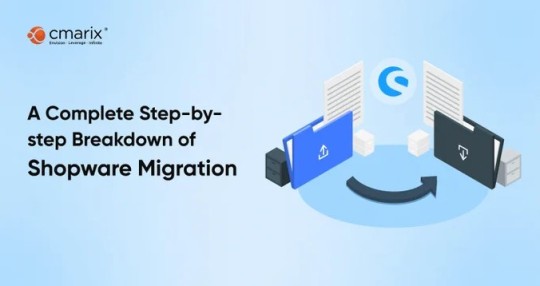
In this article, we will give you information about the benefits of the Shopware migration process and a step-by-step guide on migration.
2 notes
·
View notes
Text
Want to create high-converting landing pages and sales funnels without any coding or technical skills? Phonesites is the ultimate platform for you!
2 notes
·
View notes
Text
E commerce Development
At NSCG, we specialise in creating robust and scalable e-commerce platforms tailored to the unique needs of businesses. From MSMEs venturing online for the first time to established enterprises expanding their digital presence, assist organisations within the digital landscape through our expert e-commerce development services. We design intuitive, customer-centric platforms that improve engagement, conversions, and growth. We ensure your e-commerce platform becomes a powerful growth engine.
Our team supports every stage of e-commerce development, from ideation to deployment. We focus on creating user-friendly designs, optimising site performance, and ensuring secure payment systems. Whether you need a customised online store or enhancements to an existing platform, we empower your business to thrive in the digital economy.
0 notes
Text
How to Choose the Right Ecommerce Platform for Your Business
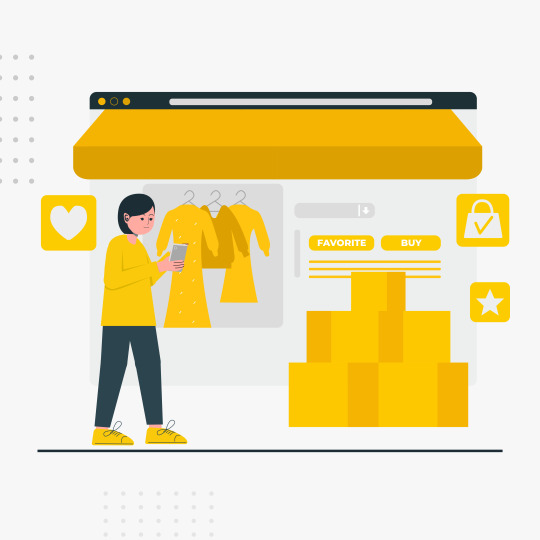
Selecting the right ecommerce platform is crucial for the success of any online business. With numerous options available, choosing the one that aligns with your business goals, budget, and scalability needs is essential. An ecommerce platform is the backbone of your online store, enabling product management, order processing, and customer interactions.
When deciding on a platform, understanding what is an ecommerce platform and the various types of ecommerce platforms can help you make an informed choice. Among the available options, Shopify stands out due to its flexibility, robust features, and affordability. In this guide, we will explore key considerations to help you select the best solution and why Shopify is a preferred choice.
What is an Ecommerce Platform?
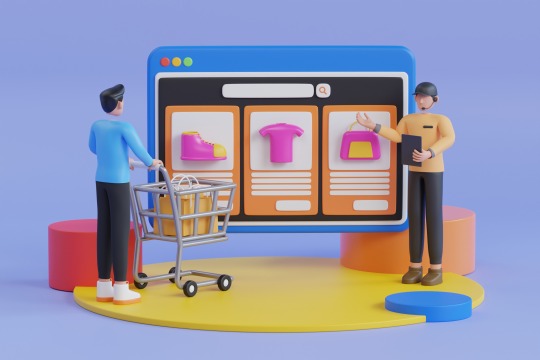
An ecommerce platform is a software solution that allows businesses to create and manage an online store. It provides tools for product listing, payment processing, inventory management, and customer interactions. Whether you are a startup or an established business, the platform you choose will significantly impact your store’s performance and growth.
Types of Ecommerce Platforms
Before choosing the right ecommerce platform, it's important to understand the different types available:
Hosted Ecommerce Platforms – These platforms, like Shopify, handle all the technical aspects, including hosting, security, and updates.
Self-Hosted Ecommerce Platforms – Open-source solutions like WooCommerce require businesses to manage hosting, security, and maintenance.
Headless Ecommerce Platforms – These platforms separate the front-end and back-end, allowing greater customization but requiring technical expertise.
Among these, Shopify is a fully hosted solution, making it ideal for businesses of all sizes without requiring extensive technical knowledge.
How to Choose an Ecommerce Platform
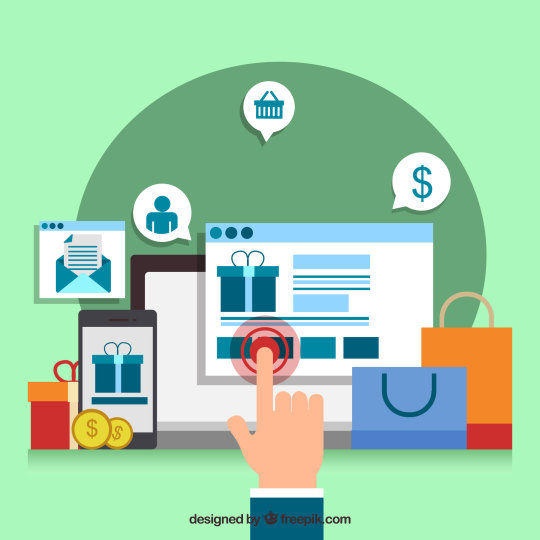
Selecting the right ecommerce platform involves evaluating several factors:
1. Ease of Use
A user-friendly platform simplifies store setup and management. Shopify offers a drag-and-drop interface, making it easy to design a professional-looking store without coding knowledge.
2. Pricing and Scalability
Understanding Shopify pricing plans is vital in making a cost-effective decision. Shopify offers flexible pricing models to cater to startups, growing businesses, and enterprises. Unlike self-hosted platforms, Shopify’s plans include hosting, security, and customer support.
3. Customization and Design
Look for a platform with customizable themes and design options. Shopify provides a vast collection of themes that can be tailored to match your brand identity.
4. Payment Processing
Your platform should support multiple payment gateways. Shopify integrates with numerous payment providers, including Shopify Payments, PayPal, and Stripe, allowing seamless transactions.
5. SEO and Marketing Features
A strong ecommerce platform should include SEO-friendly features. Shopify offers built-in SEO tools, email marketing integrations, and social media connectivity to enhance visibility and drive traffic.
6. Security and Customer Support
Security is a top priority for online stores. Shopify provides SSL encryption, fraud analysis, and 24/7 customer support, ensuring your store remains secure and functional.
Best Ecommerce Platform: Why Shopify Stands Out
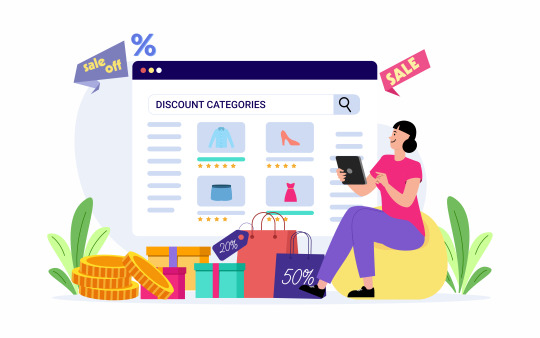
While various options exist, Shopify consistently ranks as the best ecommerce platform for businesses looking for ease of use, scalability, and comprehensive features. With a range of Shopify pricing plans, it accommodates businesses of all sizes, from startups to enterprises.
Unlike self-hosted solutions that require extensive setup, Shopify streamlines the process, allowing business owners to focus on growth rather than technical complexities.
Conclusion:
Choosing the right ecommerce platform is a crucial decision that can impact your online store’s success. Understanding what is an ecommerce platform and the types of ecommerce platforms available will help you make an informed choice. Shopify remains a top choice due to its ease of use, flexibility, and affordability. By considering your business needs, budget, and required features, you can select the best ecommerce platform to build and scale your online store successfully.
If you're looking for a cost-effective and scalable solution, exploring Shopify pricing plans can be a great starting point. With its user-friendly interface and powerful features, Shopify offers everything you need to launch and grow a thriving ecommerce business.
1 note
·
View note
Text
Best eCommerce platform for small business
Look at the Best eCommerce platform for small business. Read our blog about the types of eCommerce platforms for your business
#ecommerce#shopify#technology#custom ecommerce development#ecommerce website#ecommerce platform#software#software development#website development#searchnscore
0 notes
Text

Understanding Shopify Pricing Plans and Transaction Fees
Learn about Shopify's pricing tiers and transaction fees to optimize your ecommerce costs.
Source: https://cro.media/insights/guides/how-much-does-shopify-take-per-sale/
Shopify offers multiple pricing tiers designed to accommodate businesses of different sizes and needs. This comprehensive guide breaks down Shopify's costs, transaction fees, and helps you choose the right plan for your business.
Shopify Pricing Plans Overview
1. Starter Plan (£5/month)
Ideal for social media selling
No online store included
Basic features for getting started
Higher transaction fees
2. Basic Plan (£19/month annually, £25/month monthly)
Full online store functionality
2 staff accounts
Basic reporting features
2% + 25p online credit card rates
Unlimited products
3. Shopify Plan (£49/month annually, £65/month monthly)
Professional reporting
5 staff accounts
Lower transaction fees (1.7% + 25p)
Gift cards
Abandoned cart recovery
4. Advanced Plan (£259/month annually, £344/month monthly)
Advanced reporting
15 staff accounts
Lowest transaction fees (1.5% + 25p)
Third-party shipping rates
Custom report builder
5. Shopify Plus (Starting at $2,000/month)
Enterprise-grade solution
Custom pricing based on requirements
Advanced features and automation
Dedicated support
Transaction Fees and Payment Processing
Understanding Shopify's fee structure is crucial for managing your ecommerce costs:
Shopify Payments
No additional transaction fees
Only pay credit card processing rates
Rates decrease with higher-tier plans
Third-Party Payment Providers
Additional fees apply:
Basic: 2% per transaction
Shopify: 1% per transaction
Advanced: 0.5% per transaction
Choosing the Right Plan
Select your plan based on monthly revenue:
Up to £5,000: Basic Plan
£5,000-£10,000: Shopify Plan
Over £10,000: Advanced Plan
Additional Costs to Consider
Beyond the monthly subscription:
Domain name (annual cost)
Premium themes (one-time purchase)
Third-party apps (monthly subscriptions)
Transaction fees if not using Shopify Payments
Saving Money with Annual Billing
Save 25% on selected plans by choosing annual billing:
Basic: £19/month (save £72/year)
Shopify: £49/month (save £192/year)
Advanced: £259/month (save £1,020/year)
Conclusion
Shopify's pricing structure offers flexibility and scalability for businesses of all sizes. By understanding the costs and features of each plan, you can make an informed decision that balances your needs with your budget. Remember to consider both the base subscription cost and potential transaction fees when calculating your total Shopify expenses.
0 notes
Text

Understanding Shopify Pricing Plans and Transaction Fees
Learn about Shopify's pricing tiers and transaction fees to optimize your ecommerce costs.
Source: https://cro.media/insights/guides/how-much-does-shopify-take-per-sale/
Shopify offers multiple pricing tiers designed to accommodate businesses of different sizes and needs. This comprehensive guide breaks down Shopify's costs, transaction fees, and helps you choose the right plan for your business.
Shopify Pricing Plans Overview
1. Starter Plan (£5/month)
Ideal for social media selling
No online store included
Basic features for getting started
Higher transaction fees
2. Basic Plan (£19/month annually, £25/month monthly)
Full online store functionality
2 staff accounts
Basic reporting features
2% + 25p online credit card rates
Unlimited products
3. Shopify Plan (£49/month annually, £65/month monthly)
Professional reporting
5 staff accounts
Lower transaction fees (1.7% + 25p)
Gift cards
Abandoned cart recovery
4. Advanced Plan (£259/month annually, £344/month monthly)
Advanced reporting
15 staff accounts
Lowest transaction fees (1.5% + 25p)
Third-party shipping rates
Custom report builder
5. Shopify Plus (Starting at $2,000/month)
Enterprise-grade solution
Custom pricing based on requirements
Advanced features and automation
Dedicated support
Transaction Fees and Payment Processing
Understanding Shopify's fee structure is crucial for managing your ecommerce costs:
Shopify Payments
No additional transaction fees
Only pay credit card processing rates
Rates decrease with higher-tier plans
Third-Party Payment Providers
Additional fees apply:
Basic: 2% per transaction
Shopify: 1% per transaction
Advanced: 0.5% per transaction
Choosing the Right Plan
Select your plan based on monthly revenue:
Up to £5,000: Basic Plan
£5,000-£10,000: Shopify Plan
Over £10,000: Advanced Plan
Additional Costs to Consider
Beyond the monthly subscription:
Domain name (annual cost)
Premium themes (one-time purchase)
Third-party apps (monthly subscriptions)
Transaction fees if not using Shopify Payments
Saving Money with Annual Billing
Save 25% on selected plans by choosing annual billing:
Basic: £19/month (save £72/year)
Shopify: £49/month (save £192/year)
Advanced: £259/month (save £1,020/year)
Conclusion
Shopify's pricing structure offers flexibility and scalability for businesses of all sizes. By understanding the costs and features of each plan, you can make an informed decision that balances your needs with your budget. Remember to consider both the base subscription cost and potential transaction fees when calculating your total Shopify expenses.
0 notes
Text
Why B2B Sales Thrives with Quoting Software?
As VAR businesses engage in complex transactions with other businesses, the need for streamlined processes becomes even more critical. This is where quoting software plays a pivotal role in revolutionizing B2B sales, fostering efficiency, accuracy, and overall growth.
Quoting software simplifies the intricate process of generating and managing quotes, transforming what was once a time-consuming task into a swift and error-free operation. One of the primary benefits is the speed at which quotes can be generated.
In a competitive B2B landscape, being able to provide clients with quick and accurate quotes can be the difference between winning or losing a deal. The sales quoting software automates this process, allowing B2B sales teams to respond promptly to customer inquiries, thereby enhancing customer satisfaction and trust.
Eliminate Pricing Discrepancies in B2B Quoting
The accuracy of quotes is another crucial aspect of B2B sales, and quoting software significantly reduces the margin for errors. Manual quote generation can lead to miscalculations, pricing discrepancies, and other mistakes that may compromise the integrity of a deal.
Business sales quoting software, on the other hand, employ automation to ensure that quotes are consistent, error-free, and aligned with the pricing strategy of the business. This not only instills confidence in clients but also protects the business from potential disputes and financial losses.
Manage B2B Complexities with Ease
Furthermore, B2B quoting software facilitates customization, enabling businesses to tailor quotes based on specific customer needs and preferences. B2B transactions often involve complex pricing structures, volume discounts, and negotiated terms.
Quoting software allows sales teams to easily navigate these complexities, providing clients with personalized quotes that reflect their unique requirements. This level of flexibility not only enhances the customer experience but also positions the business as a responsive and adaptable partner in the eyes of clients.
Be aligned with your B2B Sales Strategy
The centralized nature of B2B sales quoting software for MSPs also contributes to improved collaboration within sales teams. With a unified platform for creating and managing quotes, team members can seamlessly share information, track changes, and collaborate in real time. This collaborative environment fosters better communication, reduces the risk of misunderstandings, and ensures that all team members are aligned with the overall sales strategy.
Streamline your B2B Sales
Moreover, B2B sales quoting software for VARs often integrates with other essential business tools, such as CRM systems and accounting software. This integration streamlines the entire sales process, from lead generation to order fulfillment.
It eliminates the need for manual data entry, reduces the likelihood of data errors, and provides a holistic view of the customer journey. This interconnected approach not only saves time but also empowers sales teams with actionable insights, enabling them to make informed decisions that drive business growth. The business quote generator is a catalyst for the thriving B2B sales landscape. Its ability to enhance speed, accuracy, customization, collaboration, and integration makes it an indispensable tool for businesses engaged in complex transactions. As B2B sales continue to evolve, leveraging quoting software will undoubtedly become a key strategy for staying competitive, fostering customer relationships, and ultimately achieving sustainable growth in the marketplace.
#ecommerce platform#varstreet#business software#sales quoting software#cpq software#ecommerce software#punchout catalog
11 notes
·
View notes
Text
Are you curious about Aidan Booth's Omega Project and whether it’s worth your time and money? This in-depth review covers everything you need to know, from the program's features and benefits to its potential drawbacks.
Learn how the Omega Project helps entrepreneurs build and scale online businesses using proven strategies, cutting-edge tools, and expert guidance. Whether you're a beginner or a seasoned marketer, this review will help you decide if it's the right fit for your goals. Share your thoughts or ask questions—let's discuss!
0 notes
Text
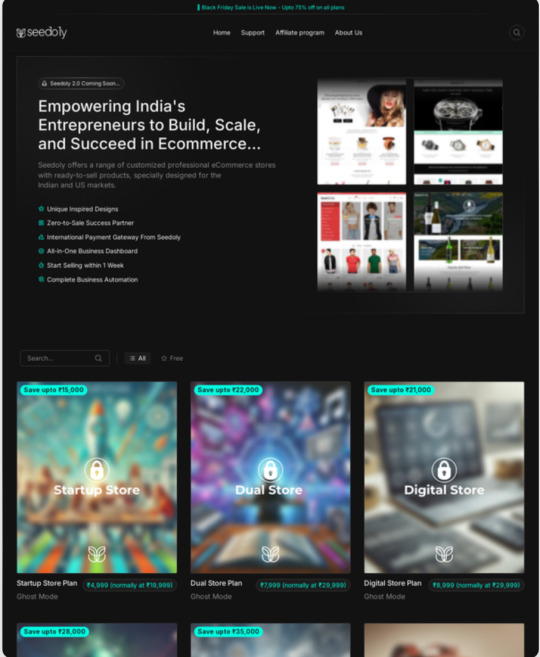
Seedoly offers custom eCommerce store setups with international payment gateways, unique designs, and complete business automation. Start selling online within a week!
1 note
·
View note
Text

E-commerce Excellence Awards - Meet Magento NYC 2024 We are excited to announce that Codilar has received the prestigious World Traveler Award at the Ecommerce Excellence Awards during Meet Magento New York 2024. This recognition celebrates our innovative eCommerce solution for Tiger-One Distribution (TGR). The award highlights our unmatched expertise in developing high-performance platforms that have played a key role in TGR’s disruption of the cannabis industry.
0 notes